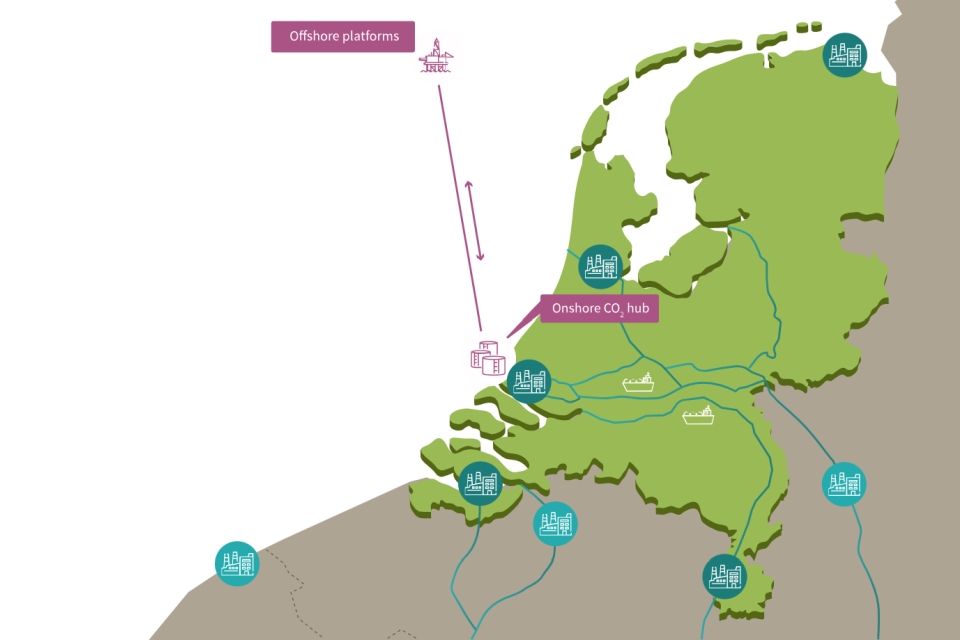L10CCS is one of the large stores to be connected to the Aramis CO2 transport and storage initiative in the Dutch part of the North Sea. The project has now entered the next phase of Front End Engineering Design (FEED).
Neptune Energy and its partners EBN, Tenaz Energy and ExxonMobil Netherlands CCS have successfully progressed the L10CCS project from the Concept Select phase, which includes various technical and economic assessments, into this next Define/FEED phase.
L10CCS seeks to store 5 Mton CO2 annually, equivalent to a third of the total CO2 emissions from Dutch domestic vehicles in one year (according to data from Statistics Netherlands, CBS). All partners have signed up to a FEED Cooperation Agreement and Neptune has awarded the Facilities FEED contract to Petrofac, with the contract having kicked off last month.
Also read: VIDEO: Neptune creates new digital twins of offshore platforms
Awaiting storage licence
The storage licence application for L10CCS was submitted in the second quarter of 2023. The project is awaiting award of the licence by the Dutch Ministry of Economic Affairs & Climate Policy. Talks with emitters, looking for a safe place to store their carbon in depleted gas fields under the North Sea, are ongoing and necessary contractual arrangements will be progressed during this project phase.
Completion of the technical FEED scopes is anticipated during the second half of 2024, with a view to progressing towards a project Final Investment Decision (FID) shortly thereafter in 2025. The timeline of L10CCS is fully aligned with the Aramis project timeline and is planned to be connected and operational as of day 1 of the opening of this CO2 transport system, now planned in 2028.
Also read: Neptune presses ahead with plans to store CO2 in Dutch and Norwegian North Sea
CO2 storage needed to meet climate goals
Lex de Groot, Managing Director of Neptune Energy in the Netherlands, the operator of L10CCS, says: ‘CCS is expected to account for nearly fifteen per cent of the cumulative reduction in CO2 emissions in the EU, according to the IEA (International Energy Agency, Ed.) Sustainable Development Scenario.’
He adds: ‘Without CO2 storage, it would not be possible to meet the climate goals. To create a well-functioning CCS market, both emitters and storage providers need CO2 transport. The region around L10 has a potential storage capacity up to 120-150 MT, so will play a crucial role in helping achieve climate goals and open up possibilities for many emitters that need safe CO2 storage in the North Sea at low costs.’
‘We’re pleased to co-operate with our L10CCS joint venture partners in this carbon storage project where we can re-use existing infrastructure and that is linked to the Aramis project,’ concludes EBN’s Business unit director CO2 transport and storage systems, Berte Simons.
Also read: First CO2 storage project in the Netherlands kicks off
European Subsidy
The European Commission (EC) has proposed to grant the Aramis CCS-project a subsidy of 124 MEUR. The public-private partners of the Aramis CCS-project aim to develop an open access CO2 transport infrastructure that enables large-scale CO2-storage and industrial CO2 emission reduction. This Connecting Europe Facility (CEF) grant will contribute to the financial investment in this energy transition infrastructure. With this CEF-grant, the European Commission recognizes contribution of the Aramis CCS-infrastructure project to the decarbonization of industries within the EU.
Picture: Aramis CCS project (by Aramis-CCS).








